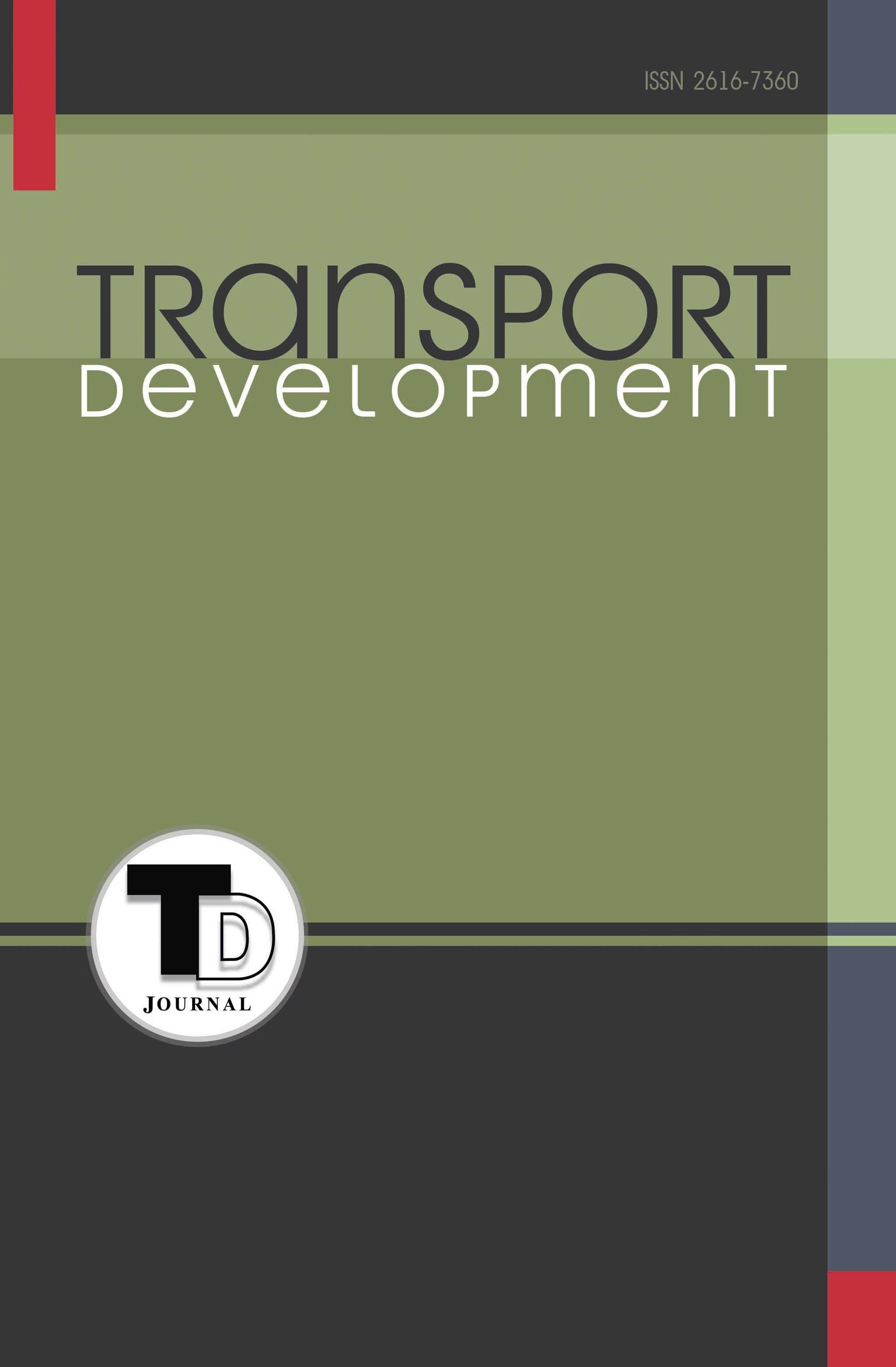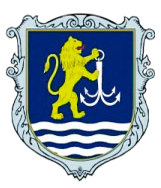OVERVIEW OF PROSPECTIVE DIRECTIONS FOR IMPROVING THE DYNAMIC CHARACTERISTICS OF VESSEL ELECTRICAL ENERGY SYSTEMS
Abstract
Introduction. The work presents a brief history of the emergence and development of electric ships in the global maritime industry and emphasizes their growing role in our time, which is the result of using those advantages that are characteristic of ships with electric propulsion – environmental friendliness, economy, better operational and dynamic characteristics, etc. Based on the given generalized scheme of the combined electric power system of the electrically driven and its main components, the main factors affecting the change in the characteristics of ship electric power systems (SEPS) during dynamic loads are determined. On the other hand, the local regulators of the constituent parts of the SEPS – the automatic regulator of the rotation frequency of the primary engines, the automatic regulator of the voltage of the generators, the controller of the frequency converter are adjusted in such a way as to ensure the optimal functioning of their regulatory objects mainly in static modes of operation. The next step in the development of automatic control systems (ACS) of the SEPS is the implementation of multi-level systems with their own control strategies, which allows to bring the operational characteristics of ship propulsion systems into compliance with the requirements of classification societies for the parameters of electrical networks during transient processes, which are also given in the article. Numerous studies and proposals for solving such tasks, the number of cited sources and the wide range of issues highlighted in them, allow us to assert that the development and improvement of SEPS for vessels with electric propulsion, as well as their regulators and control systems, will remain relevant for a long time. Purpose. An overview of the available directions for the development of the EPS of vessels with a electric propulsion plants as a whole, parts of these systems, control systems and analysis of such directions for improving the dynamic characteristics of both the systems themselves and their regulators. Results. According to the results of the review, among the main trends that determine the development of electric rowing vessels SEPS, we can mention the use of new energy sources, an increase in the total power of installations and the energy density of their individual components as well, the appearance of powerful short-term impulse loads, the abandonment of electromechanical automation units in favor of electronic devices. On the other hand, the problems of exchange oscillations in multi-unit ship power plants, accidental shutdowns of SEPS during dynamic processes, deterioration of the quality of electricity in ship power networks due to the presence of higher harmonic components caused by the use of powerful static semiconductor converters, are still waiting for their final solution. When modeling dynamic modes, some sources use mathematical models with linearized equations, without taking into account nonlinearities, the properties of which SEPS elements acquire during dynamic loads. Models with single generating units are also used, while the influence of exchange fluctuations is neglected. It was not possible to find studies devoted to the response of automatic regulators to changes in the condition of primary engines due to failures and malfunctions. Most of the proposed ways of improving dynamic characteristics are material- and labor-intensive, require significant periods of time for implementation, and are suitable for promising types of electric vessels. Conclusions. According to the authors of the studied articles, there are a number of problems for electric ships SEPS that arise during dynamic processes. In order to solve them, it is necessary to develop a mathematical model of the SEPS, taking into account the nonlinear properties of the parts of the system that appear in transient modes. After checking and conducting an experiment with the model, it is necessary to develop an adaptive regulator with the inclusion of one of the input signals that would reflect the technical condition of the primary engine. The creation of such a regulator will allow ships with electric propulsion to optimally undergo dynamic disturbances according to the criteria of safety, economy and energy efficiency.
Downloads
References
Atlantis Press, 2017. Volume 112. DOI: https://www.atlantis-press.com/article/25876778.pdf
2. Espen Skjong, Egil Rødskar, Marta Molinas, Tor Arne Johansen, Joseph Cunningham. The Marine Vessel’s Electrical Power System: From its Birth to Present Day. In: IEEE PROCEEDINGS 2015. DOI: https://folk.ntnu.no/torarnj/IEEE_Proceedings_Skjong_2015.pdf
3. П. С. Черников, В. А. Яровенко, Е.И. Зарицкая. Вплив загальносуднових споживачів електроенергії на оптимальне управління гребними електричними установками // Вісник Національного технічного університету «ХПІ». Серія: «Електричні машини та електромеханічне перетворення енергії». – Х. : НТУ «ХПІ», 2019. – № 4 (1329). – С. 75-82. – Библиогр.: 7 назв. – ISSN 2409-9295.
4. Hiroyasu Kifune, Mehdi Zadeh. Overview of Electric Ship Propulsion and Fuel Consumption. In: July 2019Marine Engineering 54(4):576-581, DOI:10.5988/jime.54.576
5. R.D. Geertsma, R.R. Negenborn, K. Visser, J.J. Hopman. Design and control of hybrid power and propulsion systems for smart ships: A review of developments, Department of Maritime & Transport Technology, Delft University of Technology, The Netherlands, Applied Energy Volume 194, 15 May 2017, Pages 30-54. DOI:10.1016/j.apenergy.2017.02.060
6. Guerrero, Josep M.; Jin, Zheming; Liu, Wenzhao; Bin Othman @ Marzuki, Muzaidi;Savaghebi, Mehdi; Anvari-Moghaddam, Amjad; Meng, Lexuan; Quintero, Juan CarlosVasquez. Shipboard Microgrids: Maritime Islanded Power Systems Technologies. In Proceedings of PCIMASIA 2016. (pp. 135-142). VDE Verlag GMBH. https://www.researchgate.net/publication/308050733_Shipboard_Microgrids_Maritime_Islanded_Power_Systems_Technologies
7. Веретенник А.М., Аболешкин С.Е. Cовременный дизель-генератор – источник энергии судовой электростанции. Судовые энергетические установки: научно-технический сборник. Вып. 28. – Одесса: ОНМА, 2011. Стр.133-145. УДК 621.436.12
8. Jonas Kristiansen Nøland, Stefano Nuzzo, Alberto Tessarolo, Erick F. Alves. Excitation System Technologies for Wound-Field Synchronous Machines: Survey of Solutions and Evolving Trends. August 2019IEEE Access 7(1):109699-109718. DOI:10.1109/ACCESS.2019.2933493
9. J. Dai, S. Hagen, D. C. Ludois, and I. P. Brown, Synchronous generator brushless field excitation and voltage regulation via capacitive coupling through journal bearings, IEEETrans.Ind.Appl.,vol.53,no.4, pp. 33173326, Jul. 2017. DOI:10.1109/TIA.2017.2681621
10. Савенко А. Е. Исследование обменных колебаний мощности при параллельной работе судовых синхронных генераторов / А. Е. Савенко // Материалы 19 международной конференции по автоматическому управлению “Автоматика 2012”. – Киев, 2012. – C. 251–252.
11. Савенко А. Е. Метод уменьшения обменных колебаний мощности при управлении параллельной работой судовых дизель генераторных агрегатов / А. Е. Савенко // Материалы 20 международной конференции по автоматическому управлению “Автоматика 2013”.– Николаев, 2013. – С. 271–272.
12. Rongjie Wang, Xiangyu Liu, Yuyuan Huang. Synchronous Generator Excitation System for a Ship Based on Active Disturbance Rejection Control. https://doi.org/10.1155/2021/6638370
13. Kyunghwa Kim, Kido Park, Gilltae Roh & Kangwoo Chun (2018) DC-grid system for ships: a study of benefits and technical considerations, Journal of International Maritime Safety, Environmental Affairs, and Shipping, 2:1, 1-12, DOI: 10.1080/25725084.2018.1490239
14. Zhuk, D.; Zhuk, O.; Kozlov, M.; Stepenko, S. Evaluation of Electric Power Quality in the Ship-Integrated Electrical Power System with a Main DC Bus and Power Semiconductor Electric Drives as Part of the Electric Propulsion Complex. Energies 2023, 16, 2961. https://doi.org/10.3390/en16072961
15. Peng Bao, Wanting Wang. Stability Improvement of Electric Ship Propulsion System Using Supercapacitor. Journal of Physics: Conference Series, Volume 2030, 2021 International Conference on Electrical Engineering and Computer Technology (ICEECT 2021) 20-22 August 2021, Qingdao, China. DOI 10.1088/1742-6596/2030/1/012006
16. Wenjie Chen, Alf Kare Adnanses, Jan Fredrik Hansen, John Olav Lindtjorn, Tianhao Tang. Super-capacitors based hybrid converter in marine electric propulsion system. The XIX International Conference on Electrical Machines – ICEM 2010, 06-08 September 2010. DOI: 0.1109/ICELMACH.2010.5607967
17. Víctor M. Moreno, Alberto Pigazo. Future trends in electric propulsion systems for commercial vessels. Journal of Maritime Research, Vol. IV. No. 2, pp. 81-100 , 2007. Printed in Santander (Spain). ISSN: 1697-4840.
18. Elasser A., Kheraluwala M. H., Ghezzo M. H., Steigerwald R. L., Evers N. A., Kretchmer J., Chow T. P. A comparative evaluation of new silicon carbide diodes andstate-of-the-art silicon diodes for power electronic applications. IEEE Transactions on Industry Applications39 (4) (2003), 915-921. DOI:10.1109/TIA.2003.813730
19. Bassham, Bobby A. An evaluation of electric motors for ship propulsion. Theses and Dissertations. Monterey, California. Naval Postgraduate School, 2003-06. In: http://hdl.handle.net/10945/1029
20. Ying Hu, Jianguo Yang, Nao Hu, Lei Hu, Zhengyan Qian, Yonghua Yu. Research and development of electronic speed control strategies for medium-speed marine diesel engines. August 2017, International Journal of Engine Research. Volume 19, Issue 5. DOI:10.1177/1468087417725005
21. Tran, T.A. The Optimization of Marine Diesel Engine Rotational Speed Control Process by Fuzzy Logic Control Based on Particle Swarm Optimization Algorithm. Future Internet 2018, 10, 99. https://doi.org/10.3390/fi10100099
22. H. Shu, X. Li, Y. Liu and R. Wang, «Model Predictive Control With Disturbance Observer for Marine Diesel Engine Speed Control,» in IEEE Access, vol. 11, pp. 49300-49318, 2023, doi: 10.1109/ACCESS.2023.3270286
23. The guide of Marine Frequency Converters marine EQUIPMENT. In: https://www.academia.edu/33141451/The_guide_of_Marine_Frequency_Converters_marine_EQUIPMENT
24. Liu T, Yao X, Kou J. Enhanced Model Predictive Control for Induction Motor Drives in Marine Electric Power Propulsion System. Journal of Marine Science and Engineering. 2024; 12(3):378. https://doi.org/10.3390/jmse12030378
25. Balestra Michele, Bellini Alberto, Callegari Sergio, Rovatti Riccardo, Setti Gianluca. (2004). Chaos-Based Generation of PWM-Like Signals for Low-EMI Induction Motor Drives: Analysis and Experimental Results. IEICE Transactions on Electronics. E87C.
26. Jati Mentari, Era Purwanto, Sumantri Bambang, Rusli Muhammad, Nasuha Aris, Tjahjono Anang, Taufik Taufik. (2021). A Fuzzy Supervisory Scalar Control for Matrix Converter Induction Motor Drives. International Journal on Electrical Engineering and Informatics. 13. 203-217. DOI:10.15676/ijeei.2021.13.1.12
27. Chua, L. W. Y. (2019). A strategy for power management of electric hybrid marine power systems. Doctoral thesis, Nanyang Technological University, Singapore. https://doi.org/10.32657/10220/48078
28. Panday, Aishwarya & Bansal, Hari. (2014). A Review of Optimal Energy Management Strategies for Hybrid Electric Vehicle. In: https://www.researchgate.net/publication/316990426_A_Review_of_Optimal_Energy_Management_Strategies_for_Hybrid_Electric_Vehicle
29. D. Radan. Integrated Control of Marine Electrical Power Systems. Thesis for the Degree of Philosophiae Doctor. Department of Marine Technology Norwegian University of Science and Technology 2008. In: https://folk.ntnu.no/assor/PhD%20Thesis/Phd_Radan_NTNU.pdf





